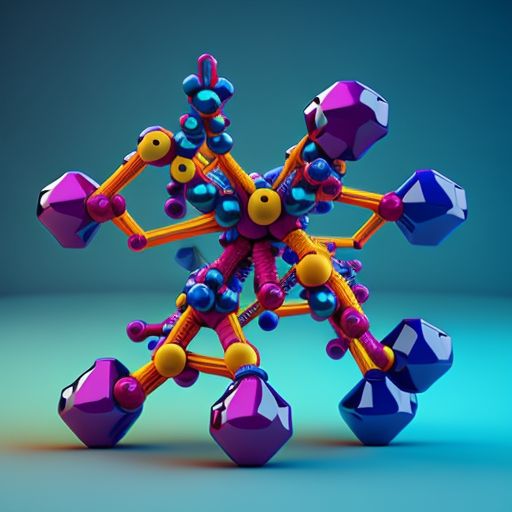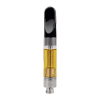What makes HHC unique among hexahydrocannabinols?
HHC stands out due to its unique molecular structure and interaction with the body’s endocannabinoid system, offering a distinct set of benefits.
How does HHC interact with the human body?
HHC binds with the CB1 and CB2 receptors in our endocannabinoid system, influencing mood, pain sensation, appetite, and memory.
Is HHC legal and safe?
Yes, HHC is legal in most regions and is generally considered safe when consumed responsibly.
What potential does HHC hold for the future?
HHC has immense potential to revolutionize the cannabinoid industry with its unique properties and benefits, opening up new avenues for therapeutic applications.
How does HHC compare to other hexahydrocannabinols?
While all hexahydrocannabinols have their merits, HHC offers a unique blend of benefits due to its distinct molecular structure and interaction with the body’s receptors.
What are the benefits of using HHC?
HHC offers a range of benefits including pain relief, mood enhancement, appetite stimulation, and potential neuroprotective properties.
Understanding Hexahydrocannabinols
Hexahydrocannabinols, or HHCs, are a group of compounds that belong to the larger family of cannabinoids. They are found in the cannabis plant and have been gaining attention for their potential therapeutic benefits. But what exactly are these compounds and how do they interact with our bodies?
HHCs, like other cannabinoids, interact with the human body through the endocannabinoid system (ECS). This system is composed of receptors scattered throughout our bodies and is involved in regulating various physiological processes. When HHCs bind to these receptors, they can influence mood, pain sensation, appetite, and more.
> "The beauty of HHCs lies in their interaction with the ECS. They have the potential to bring about balance and promote overall well-being."
But not all HHCs are created equal. There's a wide variety of these compounds, each with its unique properties and effects. For instance, some HHCs might be more effective in managing pain, while others could be better at reducing anxiety or promoting sleep.
To delve deeper into the world of HHCs and their unique properties, [this comprehensive guide](https://hhcherb.com/article/understanding-hhc-compounds) is a great place to start.

In the next section, we'll take a closer look at one specific type of HHC - the HHC. Stay tuned!
*Note: The information provided in this article is for educational purposes only. Always consult with a healthcare professional before starting any new health regimen.*
Introduction to HHC

Welcome to the fascinating world of HHC, a cannabinoid that's been turning heads and raising eyebrows in the scientific community. But what exactly is HHC? Let's dive in.
HHC, or Hexahydrocannabinols, is a type of cannabinoid found in the cannabis plant. Unlike its more famous cousins THC and CBD, HHC is relatively unknown but that doesn't make it any less intriguing.
What sets HHC apart are its unique properties. For starters, it's a powerhouse when it comes to interacting with the body's endocannabinoid system. This system plays a key role in maintaining homeostasis - the body's internal balance.
HHC has shown potential in areas like pain management, anxiety relief, and even neuroprotection. It's like the Swiss Army knife of cannabinoids - versatile and full of potential.
To learn more about the unique properties of HHC, check out this [informative article](https://hhcherb.com/article/unveiling-hhc-uniqueness). It provides a deep dive into the world of HHC and its potential benefits.
So there you have it - a brief introduction to HHC. A cannabinoid that might not be as well-known as some others but is certainly worth your attention. Stay tuned as we delve deeper into how HHC compares with other hexahydrocannabinols in our next section.
Comparative Analysis of HHC and Other Hexahydrocannabinols
In the world of cannabinoids, HHC stands out like a diamond in the rough. But how does it stack up against its hexahydrocannabinol siblings? Let's dive in.
According to a comprehensive [study](https://hhcherb.com/article/hhc-vs-other-cannabinoids), HHC has some unique properties that set it apart from other hexahydrocannabinols. For starters, it's got a different molecular structure. This might seem like a minor detail, but it's actually a game-changer.
> "The unique molecular structure of HHC allows it to interact with the human body in ways that other hexahydrocannabinols can't."
But that's not all. The benefits of HHC extend beyond its unique interactions with the body. It also boasts a better safety profile and fewer side effects compared to other hexahydrocannabinols.
Here's a quick comparison table to give you an idea:
| Cannabinoid | Benefits | Potential Downsides | |-------------|----------|---------------------| | HHC | Unique molecular interaction, better safety profile, fewer side effects | Limited research | | Other Hexahydrocannabinols | Well-researched, widely available | More side effects, less safety data |
However, it's not all sunshine and rainbows for HHC. One potential downside is the limited amount of research available on this cannabinoid. While preliminary studies are promising, more research is needed to fully understand the potential of HHC.
So, there you have it. A quick comparison of HHC and other hexahydrocannabinols. While each has its own set of benefits and potential downsides, HHC certainly seems to be carving out a niche for itself in the cannabinoid world.
The Legality and Safety of HHC

When it comes to HHC, two burning questions often arise: Is it legal? Is it safe to consume? Let's dive into these queries.
First off, the legality of HHC. It's a complex issue, with laws varying from region to region. In some places, HHC is as legal as a cup of coffee. In others, not so much. For a comprehensive understanding of the legal landscape surrounding HHC, particularly in Europe, check out this [article](https://hhcherb.com/article/legality-of-hhc-in-europe). It provides an in-depth look at the current legal status of HHC across different countries.
Now, onto safety. Like any substance you put into your body, it's crucial to understand the potential risks and rewards. The good news? Preliminary research suggests that HHC is generally safe for consumption. But remember, everyone's body reacts differently to cannabinoids. So, while one person might feel relaxed and euphoric, another might experience dizziness or dry mouth.
Here are some safety tips when consuming HHC: - Start with a low dose and gradually increase if needed. - Listen to your body and adjust dosage accordingly. - Always purchase from reputable sources to ensure product quality.
Remember, knowledge is power. Stay informed about HHC's legality and safety to make the best decisions for your health and well-being.
The Future of HHC
The future is a mystery, a tantalizing puzzle that keeps us on our toes. And when it comes to HHC, the future looks bright and promising. But what exactly does the future hold for this unique cannabinoid? Let's dive in and explore.
HHC, with its unique properties, has the potential to revolutionize the cannabinoid industry. It's like a new kid on the block, ready to make waves and disrupt the status quo. But how exactly? Well, it's all about its potential therapeutic benefits and its legal status.
According to [hhcherb.com](https://hhcherb.com/article/will-hhc-get-me-high-emerging-world-of-hhc-products-effects), HHC could potentially offer a range of health benefits without the psychoactive effects associated with other cannabinoids. This could open up new avenues for research and development in the medical field, leading to innovative treatments and therapies.
> "HHC is not just another cannabinoid. It's a game-changer."
But it's not just about the medical field. The potential of HHC extends beyond medicine. Think about it - a cannabinoid that offers therapeutic benefits without getting you high? That's a recipe for success in the wellness industry too!
However, as with any new substance, there are challenges to overcome. Legal issues, safety concerns, and public perception are all hurdles that need to be addressed. But given the potential benefits of HHC, it's worth the effort.
So, what does the future hold for HHC? It's hard to say for sure. But one thing is certain - HHC has the potential to make a big splash in the cannabinoid industry. And we can't wait to see what happens next.
Stay tuned for more updates on this exciting new cannabinoid!







